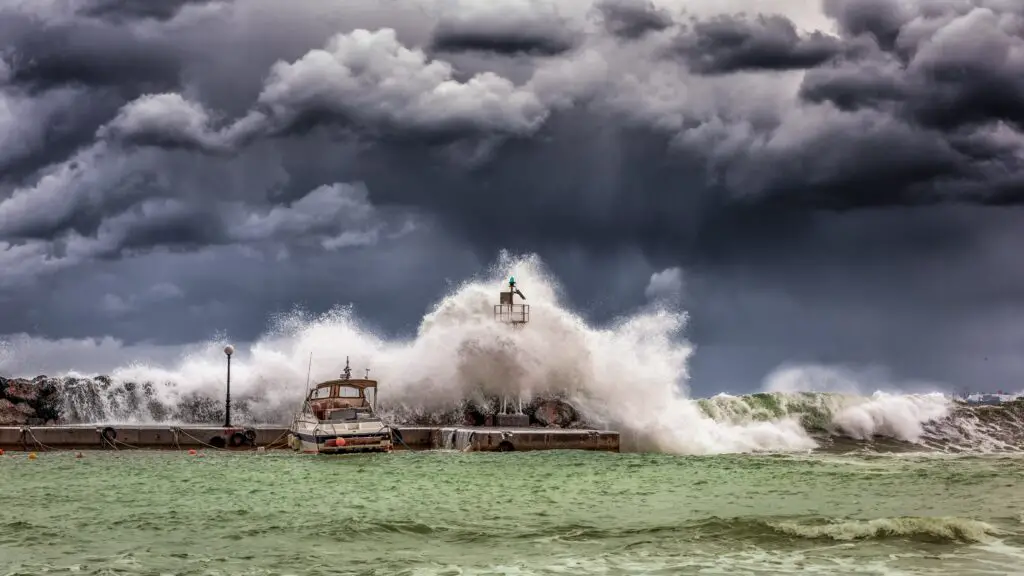Novmeber 20, 2022
We hope you enjoy our articles. Please note, we may collect a share of sales or other compensation from the links on this page. Thank you if you use our links, we really appreciate it!
As one who lived in Florida and experienced two hurricanes this year– Ian in September and Nicole in November, I was reflecting on the devastating impacts of hurricanes. While reflecting on these natural hurricanes, my mind riveted on the devastating impacts of political hurricanes taking place in different parts of the world.
A recent report suggested that global leaders have only nine years to stop irreversible impacts of climate change. Drying up of rivers and lakes, flooding of coastal zones, warming of global climate, melting of glaciers, etc. are something which could be avoided or at least slowed down by sustainable practices. The unequal society is unsustainable in its current organization – while in some places people live in abundance and waste resources, in some other places people do not even have two meals for a day.
The United Nations climate change conference in Egypt deliberated on the crisis, and as the protests outside the summit demonstrated, the leaders, despite their acknowledgement of the crisis, lacked enough political courage and wisdom to act upon urgently. It appears there is a conflict between high sounding words on climate change and the concerns of realpolitik. The participating members acknowledged the seriousness of the climate crisis and the urgency of collective action. The differences between developed and developing countries regarding funding projects to address climate change remained a sticking point. Obviously, time is of utmost importance here. Unless the global leaders act swiftly and address the crisis, it will perhaps be too late to stop irreversible damage. The world population has now crossed the mark of 8 billion, and this is another human generated crisis – more people, more food, more houses, and more exploitation of nature. Overpopulation is another larger concern that the global leaders, particularly from the south, must act upon urgently.
Besides natural disasters, one could think of social and political disasters that are affecting the world today. Developments all around the world – growing instability, nexus between extremism and politics, assault on democratic ideals and practices, acceptance of violence as a means of conflict resolution, political polarization in domestic as well as international politics, and dehumanization of opponents are not certainly good signs for individual and collective living. To give an example – many analysts predicted that the Cold War ended with the collapse of the Soviet Union, but as the ongoing war in Ukraine demonstrated the Cold War was never dead. The collapse of the Soviet Union and the end of the Cold War did not actually address the root causes of the War, which was more about clash of geopolitical visions and othering. When it is emphasized that one ideal, one value, one system is the best and the others are worst the conflicts are certainly on the horizon. Obviously for the purpose of social organization and human living one value could be considered better than the other, and there must be differences as being different is a natural human and social trait – but the question is how we address the differences.
While acknowledging the differences and addressing conflicts peacefully should be the path, increasingly the opposing groups, whether individuals, groups or states, have resorted to war and violence. The conflict in Ukraine is a stark example here. Russia did not like Ukraine’s westward tilt hence it resorted to violence and war under the pretext of special military operation, and similarly the Ukrainian allies including the US preferred to support Ukraine with weapons to stop Russian invasion. Neither side seriously explored peaceful resolution of the conflict. The war in the region has been going on for more than ten months without any signs of conflict resolution soon. The recent strikes killing people in Poland have further complicated the nature of the conflict and widened its scope beyond Russia and Ukraine. It may not be a surprise that the conflict gets further escalated with direct involvement of regional and global powers. The recent G-20 meeting in Indonesia did not evoke much hope despite the display of bonhomie.
While natural calamities cannot be completely avoided, social and political calamities can be avoided by human ingenuity and wisdom. But the search for a solution to socio-political conflicts must be deeper. Applying Plato’s famous words ‘appearance deceives’, the common trend in individual and collective living apparently is to give priority to appearance and material aspects of power, undermining the subtler dimensions of human living. Another problem here is lack of the larger vision of the world, the vision that sees the world as the larger self of the individual. The understanding of the world as one family must dawn on individuals and their leaders to avoid violent conflict. Othering, dehumanization, and moral exclusion must be replaced by belonging, humanization, and inclusion towards a more enduring and peaceful world.
And time is running out. If the political leaders do not act now for a sustainable and peaceful world, human society might have to pay a heavy price, even suffer irreversible damage to its very fabric.
(This article was published on my Times of India blog, Periscope: https://timesofindia.indiatimes.com/blogs/periscope/hurricanes-natural-and-political/)



